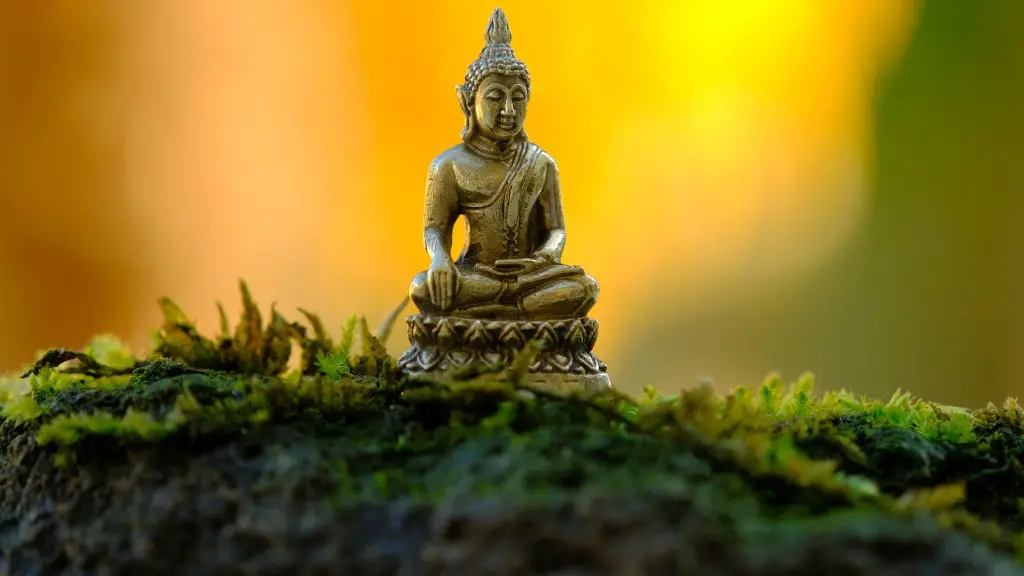Buddhism is a religion that was founded by Siddhartha Gautama in the sixth century B.C.E. in India. Siddhartha Gautama was born into a wealthy family, but he decided to leave his home and live as a beggar to find out what was causing the suffering he saw in the world. He eventually became enlightened, and he began teaching others what he had learned. The main belief of Buddhism is that people suffer because they are attached to things that they cannot control, and the only way to end suffering is to let go of these attachments. Buddhists also believe in reincarnation, and they strive to live in a way that will improve their karma and lead to a better rebirth.
Buddhism is a religion that is based on the teachings of Siddhartha Gautama. Siddhartha Gautama was born in India in the 6th century B.C.E. and is also known as the Buddha. The Buddha taught that the way to end suffering is to live in a way that is ethical and spiritual. The Buddha also taught the Four Noble Truths, which are the truths about suffering, its causes, its end, and the path to its end.
What are the 3 main beliefs of Buddhism?
Buddhism is a religion that is based on the teachings of Siddhartha Gautama. The main principles of this belief system are karma, rebirth, and impermanence.
The Five Precepts are a set of guidelines for living a moral and ethical life. The first precept is to refrain from taking life, which includes not killing any living being. The second precept is to refrain from taking what is not given, which includes not stealing from anyone. The third precept is to refrain from the misuse of the senses, which includes not having too much sensual pleasure. The fourth precept is to refrain from wrong speech, which includes not lying or speaking harshly to others. The fifth precept is to refrain from intoxicants that cloud the mind, which includes not drinking alcohol or taking drugs.
Why do Buddhist not believe in god
Buddhism is a religion that is focused on spiritual liberation and does not believe in a creator god. The Buddha himself rejected the idea of a creator god and Buddhist philosophers have argued that belief in an eternal god is a distraction for humans seeking enlightenment.
There are inherent and fundamental differences between Buddhism and Christianity. One significant element is that Christianity is at its core monotheistic and relies on a God as a Creator, while Buddhism is generally non-theistic and rejects the notion of a Creator God. This means that Christians believe in a unique, all-powerful God who created and controls the universe, while Buddhists do not believe in a personal God who intervenes in the world. This difference has major implications for how each religion views the world and our place within it.
Do Buddhists believe in god?
Siddhartha Gautama was the first person to reach the state of enlightenment. He is known as the Buddha. Buddhists do not believe in any kind of deity or god, although there are supernatural figures who can help or hinder people on the path towards enlightenment.
Buddhism teaches that drinking or using other kinds of drugs can cause carelessness and should be avoided, and strong Buddhist beliefs would be expected to have a significant impact on alcohol use.
What food is forbidden in Buddhism?
among all Buddhists, conscious eating is a common practice. This is because, for Buddhists, food is prepared as a spiritual exercise with attention to balance, harmony, and delicacy. In fact, the Buddha himself advised monks to avoid eating 10 kinds of meat for self-respect and protection: humans, elephants, horses, dogs, snakes, lions, tigers, boars and hyenas.
Buddhist teaching generally views life and death as a continuum, believing that consciousness (the spirit) continues after death and may be reborn. Death can be an opportunity for liberation from the cycle of life, death and rebirth.
Is Buddhism a faith or religion
Buddhism is a religion that is based on the teachings of Siddhartha Gautama. Siddhartha Gautama was born in India and lived during the 5th and 6th centuries BCE. He is also known as the Buddha, which means “enlightened one” or “awakened one”. Buddhism teaches that all beings have the potential to achieve enlightenment, and that suffering can be ended by following the Eightfold Path. This path includes right understanding, right thought, right speech, right action, right livelihood, right effort, right mindfulness, and right concentration. Buddhism is a major world religion with over 470 million followers worldwide.
Buddhists celebrate the holiday season in many different ways. Some Buddhists participate in the traditional Christmas celebrations, while others observe Bodhi Day on December 8th. still others may celebrate both holidays. No matter how they celebrate, Buddhists strive to maintain a sense of peace and joy during the holiday season.
Do Buddhists believe in heaven?
In Buddhism, there is no Concept of punishment or reward and there is no divine being who decides who goes to hell or heaven. There is merely the illusory results of our thought, words and deeds, which we call karma.
Buddhavacana texts are those texts which are accepted by Buddhists as being the words of the historical Buddha. These texts are seen as being in accord with the Dharma, or the teachings of the Buddha. Buddhavacana texts have a special status as sacred scripture, and are thus highly respected by Buddhists.
Do Buddhists get along with Christians
Christians and Buddhists have entirely different beliefs. Christians preach of one God, creation and salvation, while Buddhists believe in reincarnation, enlightenment and nirvana. These beliefs are not compatible at all.
The five crimes or sins are:
1. Injuring a Buddha
2. Killing an Arhat
3. Creating schism in the society of Sangha
4. Matricide
5. Patricide
What do Buddhists pray for?
When we pray to the buddhas, bodhisattvas, and spiritual masters, we are invoking the enlightened qualities of our own heart and mind. By letting go of the ego’s resistance to humility, we can tap into these powerful qualities within ourselves. These prayers can help us to let go of our attachments and ego-based desires, and instead focus on the things that truly matter in life.
Buddhist teachings state that there are divine beings called devas (sometimes translated as ‘gods’) and other Buddhist deities, heavens, and rebirths in its doctrine of saṃsāra, or cyclical rebirth. However, the Buddha himself is said to have denied the existence of a creator god, and Buddhism generally lacks a concept of a heavenly realm inhabited by supernatural beings.
Do you pray in Buddhism
There is no single answer to this question as it depends on the particular practice and beliefs of the individual Buddhist. However, in general, Buddhists do not pray to a creator god in the way that many other religions do. Instead, they may meditate on certain principles or recite certain texts as part of their devotional practices. For example, one popular practice is to recite the mantra “Om mani padme hum” which is thought to promote compassion and loving-kindness. Ultimately, the goal of these practices is to benefit all living beings, not just the practitioner.
Any person can be a Buddhist. There is no need to be “born” into Buddhism or to have Buddhist parents. Buddhism is open to people of any race, country, socio-economic background, or gender. People who wish to identify as Buddhists typically take part in a ceremony known as taking refuge in the Triple Gem.
Warp Up
Buddhism is a religion that is based on the teachings of Siddhartha Gautama. He was born in India in the 6th century BC, and after becoming enlightened, he began teaching others what he had learned. The essential beliefs of Buddhism are the Four Noble Truths, which are that suffering exists, that suffering is caused by craving and attachment, that suffering can be ended, and that there is a path to freedom from suffering. The Eightfold Path, which is a guide to right living, is also an important part of Buddhist belief.
There is no one answer to this question as Buddhism is a religion with many different sects and schools of thought. In general, however, Buddhists believe in the Four Noble Truths, the Eightfold Path, and the Three Jewels. Buddhists also emphasize the importance of compassion, loving-kindness, and mindfulness.



